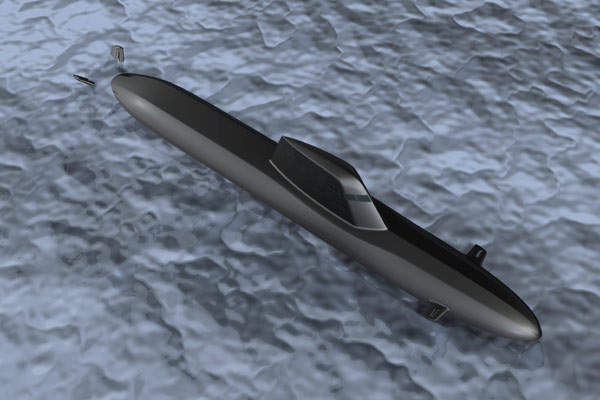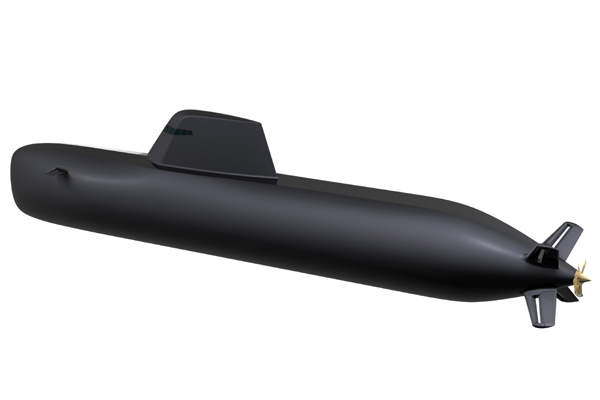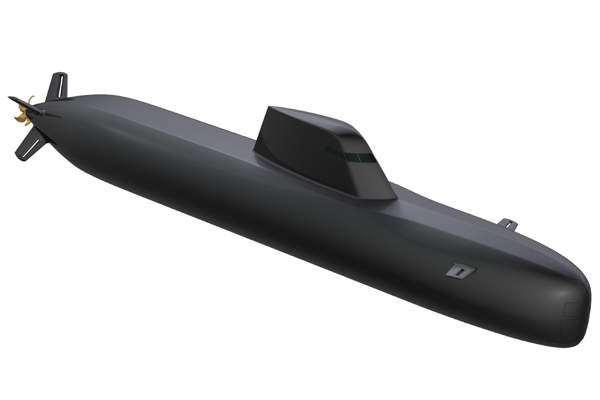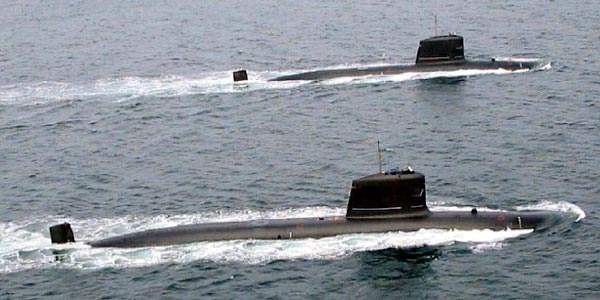The 19-crew, 855t displacement, Andrasta submarine, announced by DCNS in September 2008, has been optimised for littoral operations in coastal waters, but remains a formidable adversary in blue (deep) water environments.
The submarine is named after Andrasta, the Celtic goddess of war whose name means victorious or invincible. The prime contractor, DCNS, considers that the Andrasta has no equivalent for littoral missions in terms of manoeuvrability and stealth.
Andrasta submarine design
The submarine design draws heavily on the proven configuration and systems adopted for the Scorpene family and has about 70% commonality with the Scorpene. The Andrasta surfaced displacement is 855t compared to the 1,790t to 2,010t displacement of the Scorpene. The submarine incorporates the same level of safety, stealth signatures and systems integration as the Scorpene.
The Andrasta can lurk on the seabed in coastal waters where the water depth is typically less than 100m. At a speed of 4kt the range is more than 3,000nm and more than 1,800nm at 8kt.
Andrasta is being presented to world markets at about half the cost of attack submarines such as the Scorpene. The Andrasta design can incorporate extra performance options which are not mandatory for littoral missions but which customer countries may require, without degrading the submarine’s efficiency.
For specials operations, the Andrasta has a deployment airlock for combat swimmers, electronic warfare and intelligence gathering systems.
Andrasta missions
The submarine missions cover anti-submarine warfare, anti-surface warfare, intelligence gathering, special operations, offensive mine mooring, covert tracking of illegal activities, single ship operations and cooperative operations with other ships or maritime assets. The Andrasta is equipped to communicate easily with other assets and command centres.
Hull design
The double-hull structure gives good survivability and surfaced sea keeping characteristics. An X-configuration rudder has independently operated surfaces for a high level of manoeuvrability including a small turning radius.
The small hull helps contribute to the submarine’s stealth characteristics. The submarine has a diving depth to 200m and a submerged endurance of five days. It also has a very low acoustic and visual signature.
Command and control
The Andrasta is equipped with the DCNS SUBTICS submarine tactical integrated combat system. SUBTICS systems are in operation aboard Scorpene submarines of the Chilean Navy and Agosta 90B submarines for the Pakistan Navy
The combat management system is integrated with the sonar and other sensors (optical, optronic, electronic support measures, radar) and carries out the location and identification of vessels, target tracking, tactical analysis, decision making, action management, exchange of tactical data via datalinks, the control of weapons systems and engagement of targets.
The submarine is equipped with high-precision navigation and surveillance systems for operation in littoral waters. Surveillance missions can be successfully carried out while the submarine is at rest on the seabed.
Weapons
The Andrasta can accommodate new-generation heavyweight torpedoes such as the Black Shark, anti-ship missiles such as the Exocet SM-39 and a mine-laying system. The torpedoes and missiles are stored and carried in the six forward torpedo tubes. The small hull size of the submarine does not accommodate torpedoes and missiles for reload.
Special forces
The Andrasta submarines, which can carry two passengers plus a team of six divers, can be deployed for special forces missions which gives the Andrasta an enhanced attack capability comparable to larger submarines. The submarine is fitted with a lock-out / lock-in chamber for combat swimmers.









